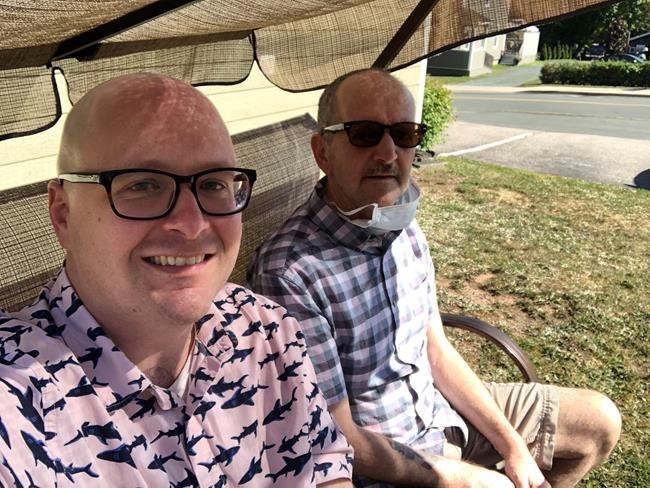FREDERICTON — Nearly a year after New Brunswick health officials raised the alarm about a mysterious brain disease afflicting the province's residents, an expert committee has determined there is no evidence of such a disease.
"The committee has concluded that no such syndrome exists," Health Minister Dorothy Shephard told a news conference Thursday.
Last March, provincial health officials alerted doctors, nurses and pharmacists about a cluster of residents with an unknown and potentially new neurological syndrome with symptoms similar to those of Creutzfeldt-Jakob disease, but CJD was ruled out in the New Brunswick cases.
"It most likely is a new disease. We haven't seen this anywhere else,'' chief medical officer of health Dr. Jennifer Russell said at the time. The cluster of 48 patients reported symptoms such as rapidly progressing dementia, muscle spasms and atrophy.
But after questions were raised about the existence of a new syndrome, Shephard appointed a committee of six neurologists from the province, along with co-chairs from the two regional health authorities and a medical officer of health, to conduct a clinical review. Shephard noted last October that 46 of the 48 cases were diagnosed by a single neurologist.
In their report released Thursday, the committee rules out a common illness among the 48. Although some of the patients had unusual symptoms, the committee wrote, "there is no evidence of a cluster of neurological syndrome of unknown cause."
Instead, the committee found possible alternative diagnoses for 41 of the patients, including Alzheimer's disease, various forms of dementia, post-concussion syndrome and cancer. Ten of the 48 patients have died and six of them had autopsies completed. "These diagnoses included such conditions as Alzheimer's disease, Lewy body disease, or cancer," the report says.
The committee said it initially had difficulty getting the information it needed to complete its review.
"Despite multiple attempts, (Public Health New Brunswick) was not able to obtain the needed information from the main referring neurologist," they wrote. "Compounding this, in New Brunswick individual medical records are contained within various systems that are set up to protect the privacy rights and personal and medical information of its citizens." They say special approvals had to be sought to get the files.
Shephard said it's important now to ensure the patients are getting proper treatment. "The focus now must turn to providing these individuals with the followup assessment and care that they need for what are most certainly serious illnesses," she said.
Families of the 48 patients met virtually with Shephard ahead of the report's publication. Many of the patients had recently received letters from the committee to say they don't have an unknown neurological condition and should contact their doctor for more details.
In a statement after the meeting, patients and families questioned the committee's conclusions and accused the government of abandoning scientific rigour "in exchange for political expediency." They said the committee did no additional testing.
"Our lives and the lives of our loved ones will not be railroaded by a slipshod investigation that offers no answers to our pain and suffering," the statement said.
Steve Ellis, whose father Roger is one of the original 48 cases, told reporters Thursday that he was disgusted by the meeting with the minister and the public briefing.
"They have chosen to close their incomplete investigation but we are not going to stop asking for a proper scientific investigation," he said. Ellis said the families are considering a crowdfunding effort to raise money to fund their own study.
Ellis said the families are aware of up to 100 more patients who have presented to a specialized clinic in Moncton — known as the MIND clinic — with similar symptoms. While Shephard said Thursday she was unaware of such cases, she did confirm that the clinic is now seeing more than 200 patients from across the province.
The committee recommended that the clinic continue to provide support to patients identified in the cluster. It also said it could not determine if the main referring neurologist sought second opinions before referring individuals to the cluster.
"As such, it is the recommendation of the committee that any future cases being considered for a novel syndrome or disease be reviewed by a second specialist," the report says. "Should the two physicians not be able to reach a consensus for identifying a patient as potentially having a novel condition, the case would be presented at a board of specialty doctors for determination."
Ellis said families have been left in the dark about their loved ones' conditions.
"None of these letters that families have reviewed with their doctors indicate a definitive diagnosis," he said. "They use the words suspected, probable, strong, but never say, 'You have this.'"
This report by The Canadian Press was first published Feb. 24, 2022.
Kevin Bissett, The Canadian Press



